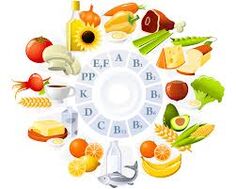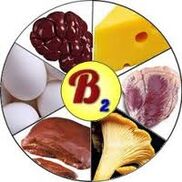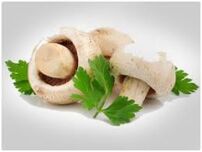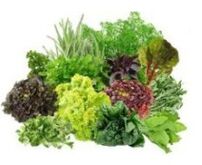
Everyone knows that vitamins are essential for our body, but few realize that these substances are essential for the proper functioning of the brain. Furthermore, in order to preserve memory and thought, certain groups of vitamins are required, which will be discussed below.
The most important B vitamins for memory
Vitamin B is the most important for the nervous system. We can say that the representatives of this group have the greatest influence on one's memory and thinking. They support the function of nerve cells and also prevent premature aging, protect the brain from overload and stress. Low content or complete lack of B vitamins leads to severe disorders of the nervous system, reduces memory and intelligence.This group of vitamins contains the most important vitamins for the brain - B1, B2, B3, B5, B6, B9, B12.
Thiamine - Vitamin B1
Thiamine - Vitamin B1, called the "vitamin of the mind", is the one that has the most impact on mental ability and memory. With its deficiency, thoughts begin to confuse and memory shrinks. Vitamin B1 directly protects the nervous system and is involved in supplying the brain with glucose.
With a full diet, you will not be short of this vitamin, as it is found in a large number of products: oats and buckwheat (many in corn and peel), bran, beans, nuts, carrots, radishes, beans, potatoes, spinach- are thiamine suppliers.

It is well absorbed, but also quickly and degraded, especially under the influence of alcohol, nicotine, sugar, tea tannins.
Vitamin B1 deficiency causes symptoms:
- amnesia;
- muscle weakness;
- severe physical and mental fatigue;
- impaired coordination and operation;
- numbness in limbs;
- abnormal irritability;
- depressive;
- tears and anxiety;
- sleep disorders.
In severe cases, polyneuritis, paralysis and limb paralysis may occur. Cardiovascular function is also impaired, changes in the gastrointestinal tract can be seen (constipation, constipation, nausea).
Riboflavin - Vitamin B2
Vitamin B2 - Riboflavin is an "energy vitamin", accelerating energy and metabolism in our body, e. g. mt accelerates the psychic processes in the brain, participates in the synthesis of neurons and the work of neurotransmitters (biologically active substances that receive neurotransmitters through neurons). With its deficiency, sports will bring fatigue rather than vigor and activity. Vitamin B2 tolerates high temperatures well but breaks down quickly in the light.
Riboflavin is available in meat and dairy products. These are liver, kidneys, eggs, dairy products, yeast, tomatoes, cabbage, rose hips.

Vitamin deficiency leads to:
- headache;
- slowing down mental processes;
- sleep;
- anorexia;
- weight loss;
- weakness.
In addition, skin changes appear - sores and cracks in the corners of the mouth (cheilitis), dermatitis of the chest and face; visual disturbances - photophobia, tears due to corneal inflammation and mucous membranes of the eyes; adrenal hormone synthesis is disrupted.
Nicotinic acid - Vitamin B3 or PP
Nicotinic acid (nicotinamide, niacin) - vitamin B3 - can be called the "calm vitamin". Vitamins are involved in the synthesis of enzymes and help to extract energy from food, with a lack of it, the body experiences fatigue, depression, depression, insomnia. In addition, nicotinamide is directly involved in the biological synthesis of hormones (estrogen, progesterone, cortisol, testosterone, insulin and others).
Excess levels of vitamin B3 are found in animal products: liver, eggs, kidneys, lean meats; to a lesser extent vegetable products - asparagus, parsley, carrots, garlic, green beans, pepper.
If it is not in the food, pellagra develops. The main symptoms of this condition are diarrhea (diarrhea), dermatitis (inflammation of exposed skin) and dementia (acquired dementia).
Pantothenic Acid - Vitamin B5

Vitamin B5 - Pantothenic Acid - This vitamin is found in many foods. This vitamin is involved in fat metabolism, the transmission of nerve messages and also triggers skin rejuvenation. It was previously thought that one could not be deficient in this vitamin.
However, given that more than half of pantothenic acid is destroyed during storage and cooking, the following symptoms may occur:
- numbness in limbs;
- memory impairment;
- sleep disorders;
- headache;
- tingling (tingling) in the hands and feet;
- muscle pain.
To supplement vitamin B5 deficiency, you need to include a variety of foods in your diet: meat, whole grains, hazelnuts, offal, yeast. Significant amounts are found in legumes, fresh vegetables, champagne, green tea.
Pyridoxine - Vitamin B6
Vitamin B6 - pyridoxine - is involved in the synthesis of neurotransmitters, including serotonin. That's why it's called 'vitamin antidepressant'.
Deficiency causes the following symptoms:
- sleep;
- irritability;
- inhibition of thought;
- depression;
- feeling anxious.
In addition, vitamin B6 affects metabolism, the cardiovascular system, immunity, skin condition, hormone synthesis, gastric hydrochloric acid and the absorption of vitamin B12.
Folic Acid - Vitamin B9

Foot acid - vitamin B9 - is involved in the synthesis of neurotransmitters, including dopamine and serotonin, that is, it affects the stimulation and inhibition of the central nervous system. Vitamin B9 is also involved in protein metabolism, the transmission of genetic information during fetal development, which is essential for the formation of normal blood cells. And in conjunction with vitamin B5, it slows down gray hair.
If missing, symptoms appear:
- memory impairment;
- fatigue;
- feeling anxious;
- anemia;
- insomnia and apathy.
Folic acid is found in large amounts in fresh dark green vegetables (asparagus, spinach, cabbage), much of which is found in beans, wheat, avocados and in small amounts in the liver, egg yolks.
Cyanocobalamin - Vitamin B12
In nature, it is only newly formed by microorganisms, bacteria, blue-green algae and accumulates mainly in the liver and kidneys of animals. Neither plants nor animals form it. This "red vitamin" is found in animal products: fish, liver, kidneys, heart, oysters, it is also found in seaweed, soy. Vitamin B12 helps our body switch from wakefulness to "sleep" to normalize mental processes and transfer short-term memory to long-term memory.
Lack of cyanocobalamin leads to:
- chronic fatigue;
- rugl;
- hallucinations;
- ring in the ears;
- irritability;
- sundl;
- sleep;
- amnesia;
- visual impairment;
- vitglöp;
- depression.
In addition to B vitamins, there are other vitamins for memory and thinking.
Ascorbic acid - Vitamin C

Ascorbic acid is a very strong antioxidant and protects the body's cells against oxidative processes. Necessary to maintain the function of neurotransmitters in the brain.
Vitamin C is not made in the body, it comes with food: roses hips, blackcurrants, sea buckthorn, parsley, sweet red peppers, citrus fruits, green onions, cabbage, horseradish, nettle, from animal products it is found only in the liver.
Tocopherol Acetate - Vitamin E
This fat-soluble vitamin is above all an excellent antioxidant that removes toxins and free radicals from brain tissue. It is included in the fat composition of cell membranes. A diet rich in vitamin E helps protect the body against heart attacks and atherosclerosis, thus preventing dementia.
For this you need to take crude oils (olive oil, soy, cereals), as well as green beans, flour and rye, beans, green salad, lentils and oats.
Calciferol - Vitamin D
Inserts the body with food and is newly synthesized in the skin under the influence of UV rays. Calciferol is the "main conductor" of the metabolism of calcium in the body. In addition to its important effects on bone and tooth formation, cell growth and development, vitamin D is essential for proper nerve transmission and muscle contraction.
It is found in large quantities in animal products: butter, fatty fish (herring, tuna, salmon, mackerel), fish oil, liver, egg yolk.
Bioflavonoids - Vitamin P

The main effect of vitamin P is to reduce capillary permeability and sensitivity. Along with ascorbic acid, it protects the body against oxidative processes. This prevents bleeding in the brain. Rich in vitamin P citrus fruits, rose hips, black coconut, green tea, apples.
In addition to a healthy diet, the use of vitamins, we must not forget about other ways to prevent dementia. This is the only way to gain good memory, energy and optimism in old age.







































































